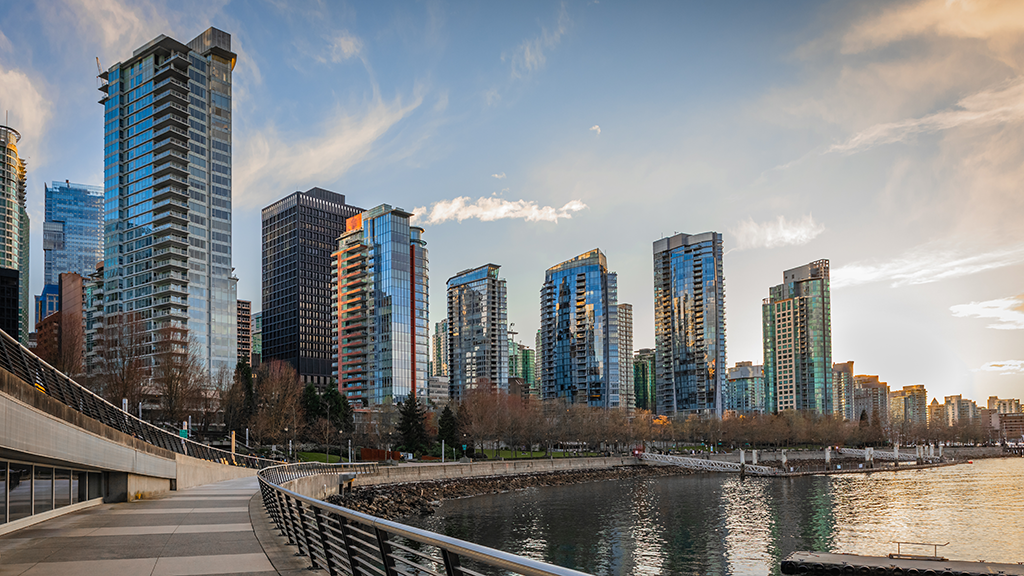The Metro Vancouver residential market is in poor health and its prognosis is not good.
The demand for condominiums is weak and isn’t expected to recover in the foreseeable future.
According to a recent forecast by real estate marketing firm Rennie, the number of unsold condominiums is projected to increase by 60 per cent in 2025, from 2,179 units to 3,493 units.
If the pattern holds, developers will have higher carrying costs for unsold inventory, which, in turn, could reduce their ability to start new projects.
On the rental front, not nearly enough units are being built to satisfy the region’s voracious appetite.
According to a 2024 Metro Vancouver report, purpose-built rental construction across the region hasn’t kept pace with the number of new renters for more than a decade.
What’s going on? To try to get a handle on the situation, the Journal of Commerce asked three local housing experts for their opinion.
“That the markets for new condos and rental apartments are not working is the result of a perfect storm of causes,” says Vancouver developer and retired architect Michael Geller.
Many of the unsold condo units were to be purchased by investors, he says.
“Now that governments have brought in such measures as bans on short-term rentals and foreign buyers, investors don’t have the same appetite for these units,” says Geller.
“Quite a few” developers have switched from building condos to purpose-built rental, he says.
“But there are questions about the financial viability of new rental projects. There are tens of thousands of units that have been approved but not yet started.”
Patrick Condon, the James Taylor chair in Landscape and Liveable Environments at the University of British Columbia, says Vancouver’s housing market troubles are part of a global phenomenon.
“It has little to do with demand from local wage earners seeking homes and everything to do with the global downturn in the investor market,” says Condon.
The shift has been driven by the end of ultra-low interest rates, which has reduced the investment appeal of small condos in central city highrises.
“The issue is not a surplus of condos per se, but that demand for this type of unit has largely vanished,” he says. “Recently, rental developments have been favoured over condo projects by institutional investors, a trend observed globally.
“However, these rental proposals are financially unviable unless land prices fall significantly. So far, that correction hasn’t occurred.”
The result is that condo and apartment construction has slowed “dramatically,” both locally and globally.
“This trend is unlikely to reverse unless land prices collapse or interest rates return to the near-zero levels seen during the pandemic,” he says.
Cameron Gray, former director of Vancouver’s affordable housing initiatives, says Metro Vancouver’s condo problem is not so much a symptom of a glut on the market, but a lack of demand for new condos at their current price.
“It’s more than local purchasers can afford to pay,” says Gray. “With the introduction of measures to discourage foreign ownership of Vancouver real estate, and the softening of real estate worldwide, especially in China, there isn’t the off-shore interest in Vancouver’s real estate any more.
“The boom bloom is off the real estate rose. There are many condos under construction and approaching completion that were started when the real estate market was much stronger and foreign investment wasn’t discouraged.
“Big projects take a lot of time to develop, and market conditions have changed radically.”
In the rental market, the rents required for new market rental to be viable are higher than most renters can pay.
Gray says the troubles in the condo and rental markets mean fewer units will get built.
“And I suspect a slower pace of development for years to come,” he says. “Something will have to give. Construction costs have to come down, incomes will need to increase, obligation to existing tenants will have to be relaxed and land costs will have to fall.”
To put Vancouver’s situation in context, all is not doom and gloom in the Western Canadian residential market.
David Johnson, president of the Edmonton Construction Association, says housing in his city is still affordable, and that housing starts in 2024 were up 39 per cent over 2023.
Bill Black, president of the Calgary Construction Association, says, “Housing here is still going hard at it with start-ups increasing year-over-year three years in a row, and demand still high,” he says.




Recent Comments